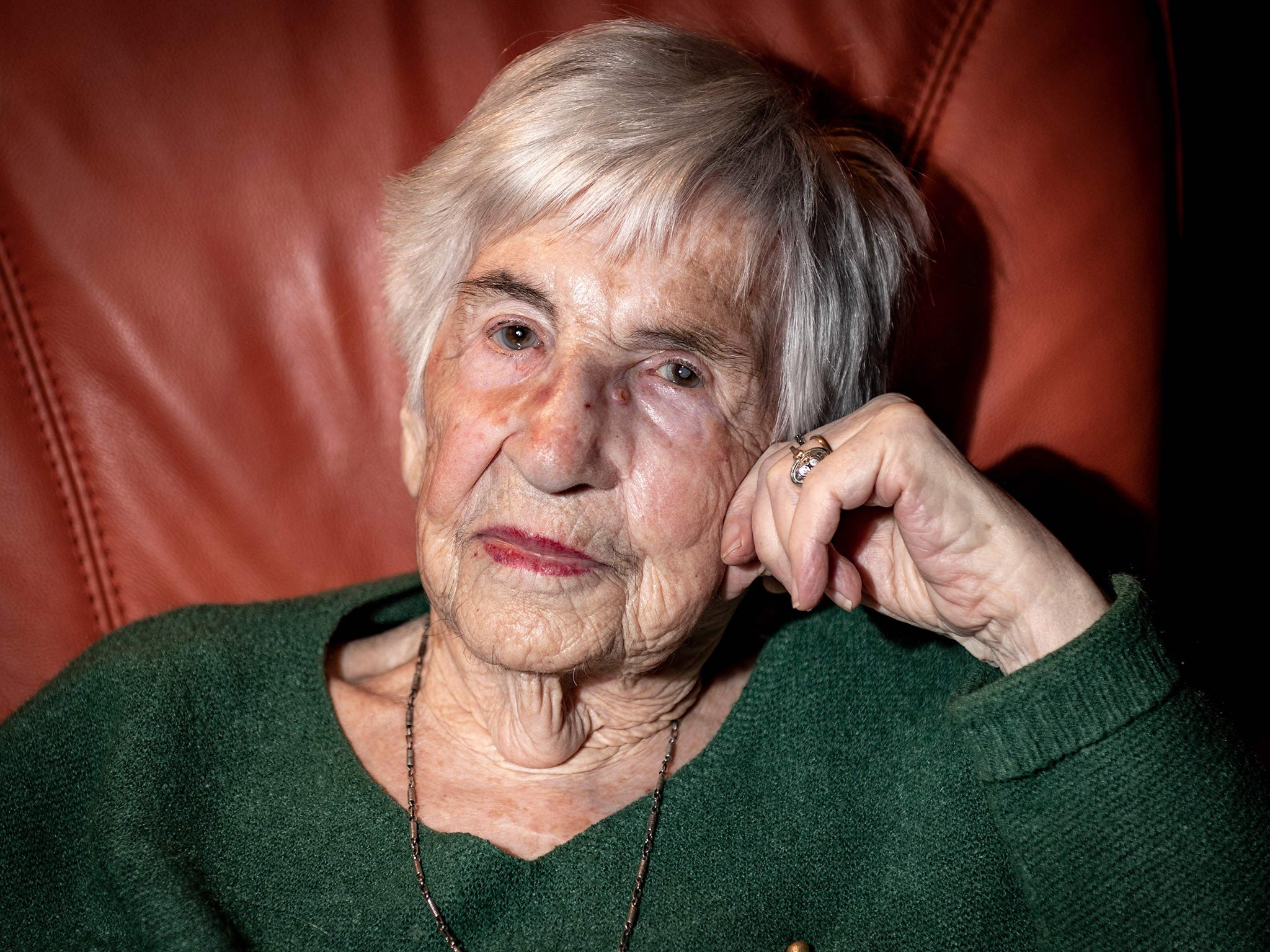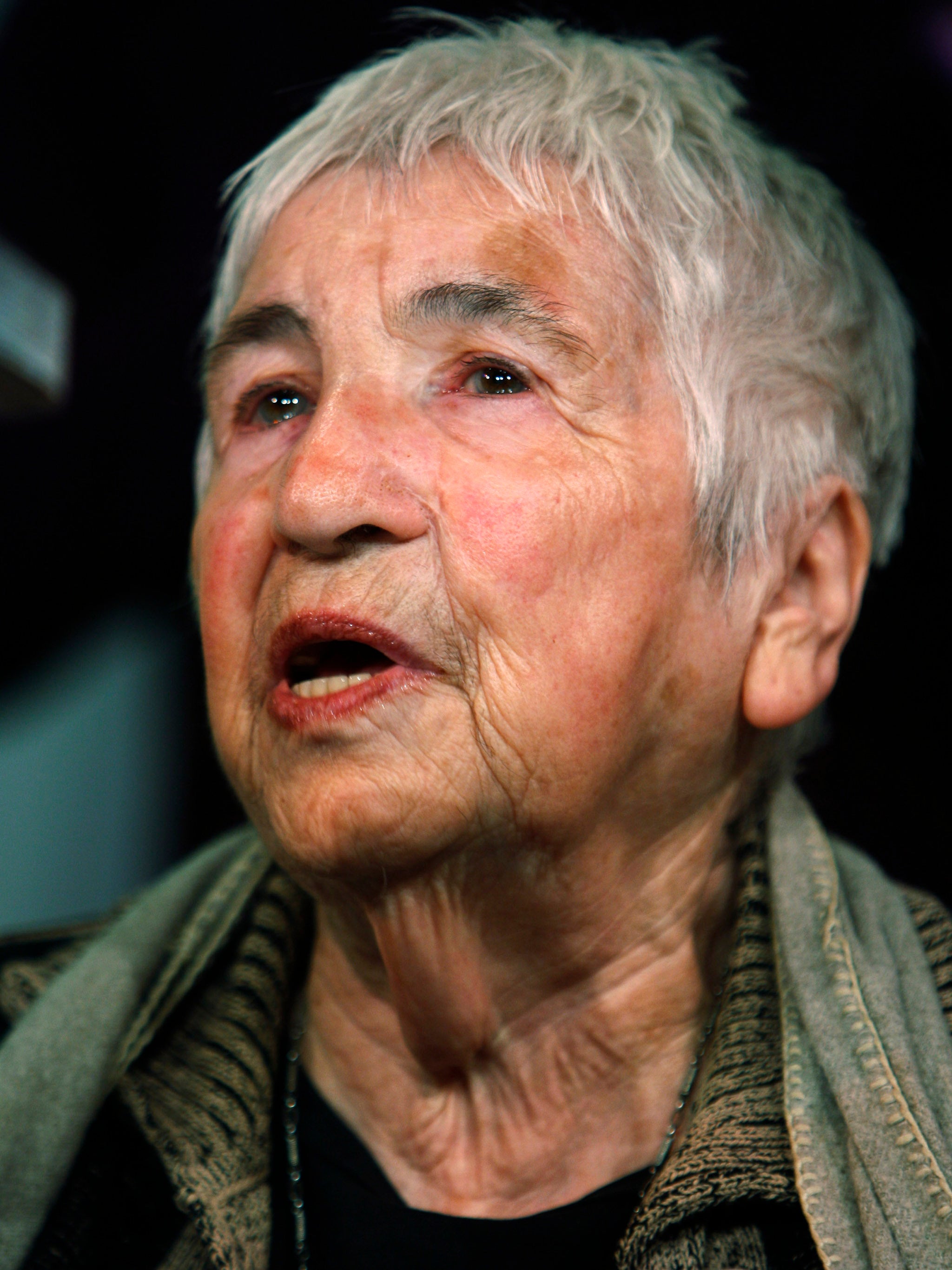Esther Bejarano: Auschwitz survivor who used music to fight hate
As the accordionist of the camp orchestra, the anti-fascist dedicated her life to ensuring that the horrors of the Holocaust would be remembered

Esther Bejarano, who died earlier this month aged 96, was just 18 when the Nazis sent her to Auschwitz, forcing her into a life of hard labour, isolation – and music.
Having heard rumours that SS guards were looking for an accordion player to join the camp’s orchestra, she volunteered, despite not knowing how to play the instrument.
Bejarano died on 10 July at a Jewish hospital in Hamburg, Germany. Now, only Anita Lasker-Wallfisch, a cellist, is believed to remain from the group.
The Auschwitz Women’s Orchestra, formed of around 40 inmates, was made to perform whenever prisoners were marched off to work or when new trains arrived packed full of Jewish people.
“They must have thought, ‘Where music is playing, things can’t be that bad,’” Bejarano told The New York Times in 2014. “They didn’t know where they were going. But we knew. We played with tears in our eyes.”
During speeches she gave about her time at Auschwitz, Bejarano spoke freely about the preferential treatment shown to orchestra players. Not only did being in the group refrain members from carrying out hard labour – in her case, moving heavy stones – it also meant guards treated them better. Bejarano’s accordion playing, for instance, earned her decent medical treatment during two illnesses.
Her death was announced by the International Auschwitz Committee, which she co-founded alongside fellow survivors and served as a powerful mouthpiece on issues such as xenophobia, antisemitism and racism in her later years.

“Esther Bejarano survived Auschwitz because she played the accordion in the camp orchestra,” Meron Mendel, director of the Anne Frank Education Centre, said on Twitter following the news. “She has dedicated her life to music and the fight against racism and antisemitism.”
Bejarano, whose sister and parents were killed by Nazis, spent the majority of her adult life educating children and students about the Holocaust.
“It is my revenge that I go to the schools, that I tell people what happened back then. So that nothing like that can ever happen again,” she once said.
In 1943, the same year she arrived at Auschwitz, Bejarano was transferred to the Ravensbruck concentration camp in northern Germany. On a death march from the camp near the end of the Second World War, it was there that she and several other prisoners escaped.
She subsequently moved to what would become Israel and studied singing before marrying a truck driver, Nissim Bejarano, in 1950, with whom she had two children: Joram, a son, and Edna, a daughter. In 1960, she returned to Germany, settling in Hamburg, and set up a laundry service with Nissim.
Bejarano’s children were quickly introduced to their mother’s talent for using music to combat prejudice. The trio formed a group in the 1980s, which they named Coincidence, and performed Yiddish melodies and Jewish resistance songs to crowds of people.
It was not until 2009, though, when she was in her eighties, that Bejarano took on perhaps her most surprising musical role of all: joining Microphone Mafia, a German hip-hop group. With them, she continued to spread her anti-fascist message to young audiences in Germany and around the world.
“One’s best years as a youth are those from ages 16 to 20,” she told German broadcaster Deutsche Welle shortly before her 90th birthday. “But what kind of youth did we [Jews] have? None, really. A horrible youth.”
Microphone Mafia paid tribute to their friend and band member after her death. “Twelve years together and almost 900 concerts together, and all this thanks to your strength,” the group wrote on its website. “Your laughter, your courage, your determination, your loving manner, your understanding, your fighting heart.”
For Bejarano, it seems her life’s work was always about harnessing the power of music.
“I use music to act against fascism,” she told The New York Times during her 2014 interview. “Music is everything to me.”
Bejarano is survived by her children, two grandsons and four great-grandchildren.
Esther Bejarano, Holocaust remembrance activist, born 15 December 1924, died 10 July 2021


Join our commenting forum
Join thought-provoking conversations, follow other Independent readers and see their replies
Comments